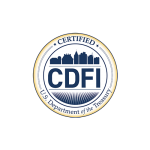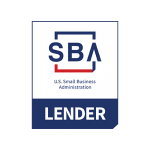Personal Loans & Your Credit Score

They can help raise your score, but they have to be repaid on time.
A personal loan can give you a way to pay for major expenses when you don’t have the cash on hand. However, a personal loan can impact your credit score, so it’s important to know the risks and benefits before you apply for one.
As long as you are on time with payments, taking out a personal loan can be good for your credit score. In the long-run paying off a personal loan in a timely manner will boost your overall score, however in the short term and make it more difficult for you to obtain additional credit before that new loan is paid off. Conversely, if you miss or default on a personal loan, your credit score will suffer.
If you decide to take a personal loan, be smart and research all of your options thoroughly in order to qualify for the best possible loan.
What Is a Personal Loan?
Unlike auto or home mortgage loans, which are applied for a specific purchase, personal loans are consumer loans that can be used for any reason. The funds can be used to start a new business, pay medical bills or provide needed cash in an emergency.
Personal loans typically have lower interest rates than credit cards. Many people use them to pay off credit card debt or other high-interest debt. They are often referred to as debt consolidation loans.
Personal loans are unsecured. This means they don’t require you to put up any collateral, however, their interest rates are usually higher than those for secured loans such as auto loans or home mortgages.
You can get a personal loan from a bank, credit union, or online lender. The loan terms you qualify for will vary depending on your credit score, the amount you’re seeking, and other factors. With a good credit score, you can often get approved for a personal loan within a few days.
What Factors Into Your Credit Score
To understand how taking out a personal loan affects your credit score, you must know how the score is calculated. The most commonly used credit score by lenders is FICO, which was created by the Fair Isaac Corporation. FICO scores range between 300 and 850.
The scores are calculated based on five factors: payment history, amounts owed, length of credit history, new credit, and credit mix. The exact percentages may vary among the three major credit rating agencies, but here is a breakdown of how much weight each factor has in the calculation, according to FICO:
- 35% is based on your payment history
- 30% is based on the total amount of your outstanding debt
- 15% is based on the length of your credit history
- 10% is based on any new debt or newly opened lines of credit
- 10% is based on credit mix—the number of credit lines that you have open (including secured credit cards)2
The three major credit reporting bureaus in the United States that lenders turn to—Equifax, Experian, and TransUnion—provide similar scores on your creditworthiness.
How a Personal Loan Can Boost Your Credit Score
A personal loan that you repay in a timely fashion can have a positive effect on your credit score. It demonstrates that you can manage debt responsibly. When used appropriately, personal loans can help to improve your credit score in several ways.
Contributing to a better credit mix: Having a variety of different types of credit helps to boost your credit score. A personal loan is an installment loan, which means you pay it off in regular monthly installments. If most of your credit is revolving credit, such as credit cards, a personal loan can enhance your credit mix.
Helping you build a payment history: Making your personal loan payments on time helps to establish a positive payment history, which can increase your credit score. This will only work in your favor if you make the loan payments in full and on time every month.
Reducing your credit utilization ratio: Because it’s an installment loan, a personal loan doesn’t factor into your credit utilization ratio, which measures how much of your available revolving credit you’re using. Using a personal loan to pay off revolving credit, such as credit card debt, can help you improve your credit scores by replacing revolving debt -which factors into your credit utilization ratio with an installment loan – which doesn’t.
How a Personal Loan Can Hurt Your Credit Score
Personal loans also have some downsides you should be aware of. Here are a few ways that financial institutions will view the impact of your personal loan.
Creating an inquiry on your credit report: When you apply for any type of credit, including a personal loan, lenders will do a credit check. This results in a hard inquiry on your credit report, which negatively affects your credit score. The dip from a single hard inquiry lasts only a few months; however, too many hard inquiries can do more damage to your credit score.
If you’re applying for personal loans from multiple lenders to get the best terms, consolidate your applications into the span of a week or two to minimize their negative impact on your credit score. Most institutions will view this as rate shopping and not penalize your credit.
Digging deeper into debt: Taking out a new personal loan means acquiring more debt. If you use a personal loan to pay off higher-interest debt, be sure you change the habits that got you into debt in the first place. For instance, if you use a personal loan to pay off a maxed-out credit card, and then start charging that credit card again, you could easily end up over your head.
What Credit Score Is Needed for a Personal Loan?
Generally, lenders view scores above 670 as an indication that a borrower is creditworthy. The higher your credit score, the more likely a lender is to approve your loan application. Higher scoring consumers are also offered better terms such as a lower interest rate.
Also keep in mind that while your credit score plays a crucial role in helping you qualify for a personal loan, lenders also consider other factors such as the amount of income you earn, how much money you have in the bank, and how long you have been employed.
When Is the Right Time for a Personal Loan?
Now that you know the pros and cons of personal loans, when might it make sense to apply for one? Here are some scenarios where a personal loan could be your best option.
You need to pay off high-interest debt. Since personal loans have lower interest rates than credit cards, they can help you get out of credit card debt at a lower cost.
You have a costly emergency such as an unexpected medical bill. When an expensive emergency strikes, a personal loan with its lower interest rate and fixed payments can be a better way to go.
You are planning a major remodeling of your home. Unlike a home equity line of credit (HELOC), personal loans don’t require using your home as collateral. This allows you to finance remodeling without putting your home at risk.
The Bottom Line
A personal loan will cause a slight hit to your credit score in the short term, but making payments on time will boost it back up and will help you build your credit. The key is repaying the loan on time. Your credit score will be hurt if you pay late or default on the loan. And don’t forget that a personal loan may also reduce your borrowing power for other lines of credit.
Personal loans can be a useful tool for improving your credit score, reducing credit card debt, or covering unexpected expenses. However, they also come with costs and risks that you need to consider before you apply. Carefully weigh the pros and cons of personal loans and take an honest look at your own financial behavior to decide if a personal loan is right for you.





